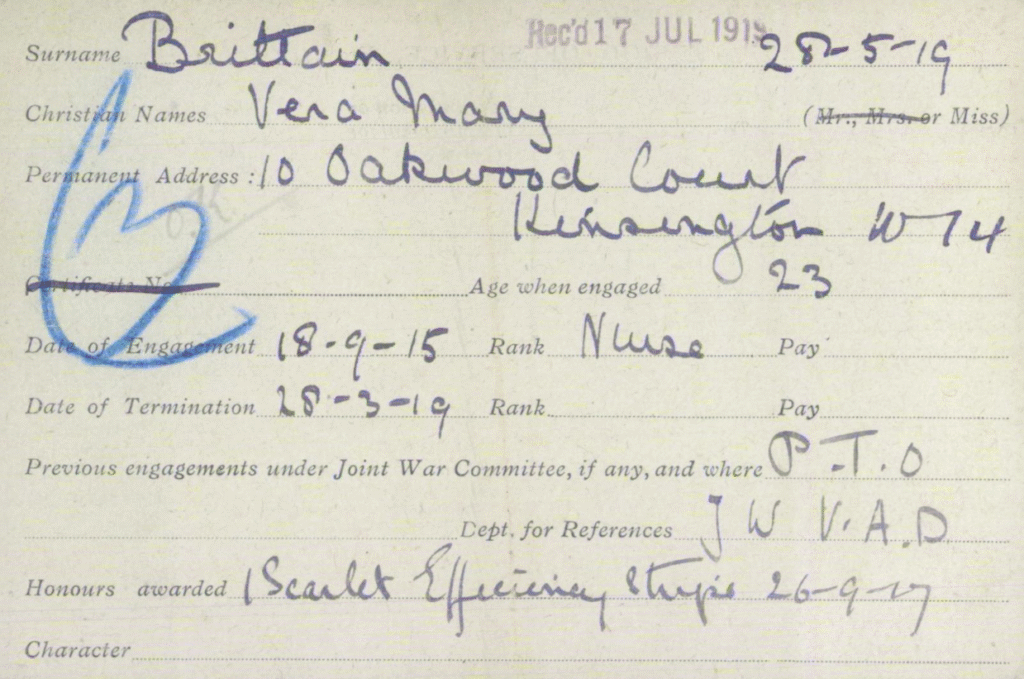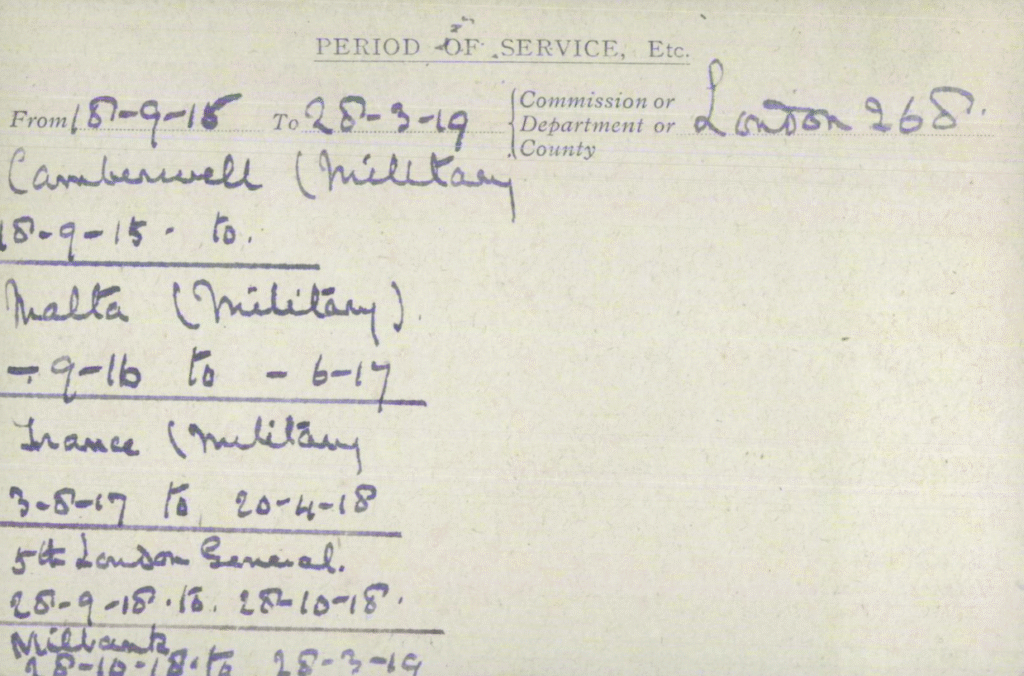With the outbreak of war on August 4th 1914, Vera, Roland, Edward and their friends believed passionately in their patriotic duty to fight, and the young men applied immediately for commissions in the British army. Roland was sent to the Western Front with the 7th Worcestershire regiment in the spring of 1915. He and Vera became engaged to be married while he was on leave in August of that year. After months of waiting, Edward finally went to France in February 1916.
After leaving Somerville College in July 1915 to begin her nurse training at the Devonshire hospital in Buxton, Vera transferred in October to a military hospital, the 1st London General Hospital in Camberwell, south-east London.

Vera at Melrose, Buxton 1915

Vera in nurse uniform, c1916 (SC)
Waiting in Brighton for Roland to arrive home on leave for Christmas 1915, Vera learned that he had been killed in France by a German sniper. In September Vera had her first foreign posting in Malta. More tragedy was to come. In April 1917, Victor Richardson, Roland and Edward’s school friend had become a great source of comfort to Vera after Roland died. He was blinded in April 1917 and a few days later, Vera heard Geoffrey Thurlow had been killed, shot through the lungs, at Arras. Vera decided to return to England to marry and care for Richardson, but he died two weeks after she arrived home, in June 1917.
Grief-stricken, utterly disillusioned and with all her patriotism destroyed, Vera requested VAD service in France and was sent to 24 General Hospital at Étaples. Here she nursed German prisoners of war. Vera was called home to London to look after her parents. While there she learned of Edward’s death in action on the Austro-Italian front, on 15th June.
A month later, Vera published Verses of a V. A. D. which contains the two poems most popular today for recitals and readings: Perhaps, about Roland and For My Brother.
Serving briefly in a civilian hospital in September 1918, Vera was transferred in October to Queen Alexandra’s military hospital in London, where she remained until April 1919. She ended the war traumatised, exhausted and on the brink of a nervous breakdown.


Vera’s record of service (British Red Cross)